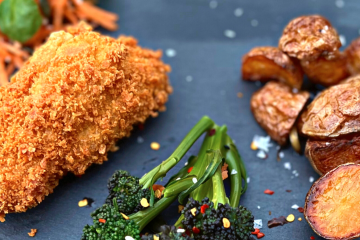“We could sell so much game, if only”

Liam Stokes, CEO of British Game Assurance, discusses the untapped market potential of British game meat.
It is a common refrain. At British Game Assurance (BGA) we talk to buyers from high street names, supermarkets and pub chains, as part of our mission to get more people eating more game. One comment we hear all the time is that game has huge “head-room”, which is the unrealised potential market size.
So why is this “headroom” going unfulfilled? Two reasons are given: too much lead and too little assurance.
The reason game has so much potential is because it appeals to the conscious consumer, shoppers who care about welfare and the planet. Game is supremely free range and harvested in the wild. The production of gamebirds incentivises the planting of carbon-soaking trees. These are the potential new customers for game, and these are the customers most likely to ask tricky questions about provenance and the environment. They are also the sort of people that would make new and surprising allies for game shooting if they can be converted to eating game.
This is why Aim to Sustain is recommending registering your shoot with BGA if you supply Approved Game Handling Establishments, which are essentially the larger processors.
If we can transition the supply into the commercial supply chain to lead-free and BGA-certified, we have a much better chance of both returning value to shot birds and of growing the number of people choosing to eat game.
It is absolutely vital to the future of shooting that all game managers think of themselves not only as custodians of the countryside, but as food producers. Thinking in this way means considering the size and weight of the birds released, staying in close communication with game dealers who might want your birds, handling game as food from the second it is shot, and moving to lead-free and BGA-certified.
The more shoots that take these steps, the more robust the game meat sector will become, and the more confident we can be in our future.

